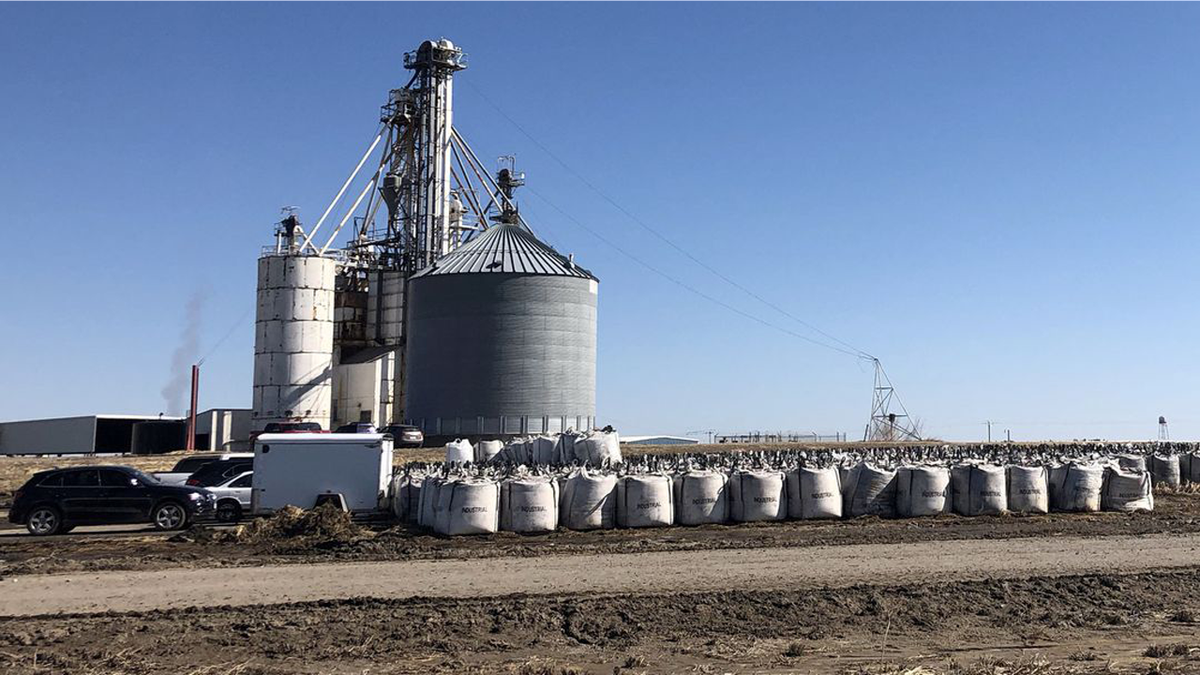The electric vehicle agenda can't advance without China: Russ Vought
Trump-era OMB Director Russ Vought joins 'Fox & Friends First' ahead of congressional lawmakers' upcoming meeting with Ford and GM to discuss their reliance on China.
The Environmental Protection Agency (EPA) watered down a renewable fuels proposal that was set to subsidize electric vehicles (EV), after pleas from refiners.
In a long-awaited action Wednesday, the EPA finalized its Renewable Fuel Standard (RFS) program establishing biofuel volume requirements for 2023 to 2025. However, the finalized program veered from the proposal the agency unveiled late last year which would have implemented a new credit system to incentivize EV manufacturing and purchasing.
"Refiners are pleased to see that EPA has chosen to abandon its unlawful attempt to turn the RFS – a liquid fuel program designed to promote U.S. energy independence – into yet another nine-figure government subsidy program for electric vehicles," Chet Thompson, American Fuel & Petrochemical Manufacturers (AFPM) president and CEO, said in a statement. "eRINs do not belong in the RFS and shouldn’t be resurrected."
"Congress provided EPA flexibility in the years after 2022 to modernize RFS volumes to derive better carbon benefits from the program and help the program work better for all stakeholders," Thompson added, criticizing the finalized program as a whole. "Setting unachievable conventional biofuel targets is a missed opportunity."
REPUBLICANS PUSH TO STRIKE DOWN CALIFORNIA'S ELECTRIC VEHICLE MANDATES

Shortly after taking office in 2021, President Biden vowed to ensure 50% of new car sales were zero-emissions by 2030. (Stephen Maturen/Getty Images | David Paul Morris/Bloomberg via Getty Images)
According to the AFPM, the proposed program would have created a so-called "eRIN" obligation compelling petroleum refineries to subsidize EV companies for making vehicles capable of charging with electricity generated by biofuels. That obligation would have gone into effect in 2024 and 2025 under the program.
The EPA said the eRIN program would "support Congress’ goals of reducing [greenhouse gas emissions] and increasing energy security, both of which can be affected by the design of that program" in a December proposal.
While it axed the eRIN proposal, the EPA vowed Wednesday to "continue to work on potential paths forward" for the program.
In addition to opposition from refiners, the original EPA RFS plan also faced pushback from Republican lawmakers. Sens. Chuck Grassley, R-Iowa, and John Cornyn, R-Texas, introduced legislation last month to prohibit the EPA from pursuing its eRIN credit system, saying the proposal would "prop up the EV industry while devaluing incentives for ethanol and biodiesel expansion."
BIDEN ADMIN GREEN-LIGHTS CHINESE EV BATTERY FACTORY IN MICHIGAN, DESPITE LOCAL OPPOSITION
"The EPA’s proposed E-RINS rule would reduce demand for cleaner, cheaper biofuels for the vast majority of vehicles on the roadway and create a brand new cash stream for electric vehicle manufacturers," Grassley said in a statement. "My bill would preserve the integrity of the Renewable Fuel Standard by preventing electric vehicle makers from generating credits that, under law, are reserved for renewable fuel producers."
The RFS program enables the EPA to periodically establish how much biofuel refiners must blend with transportation fuel. Under the program, refiners that fail to meet the blend requirements are able to purchase credits known as Renewable Identification Numbers.

An ethanol plant is pictured in Mead, Nebraska, in 2019. Ethanol is a type of renewable fuel often derived from corn starch. (Reuters/Humeyra Pamuk/File Photo)
The EPA proposal floated allowing EV makers to sell those credits, creating a new revenue stream for automakers, according to Grassley.
Overall, the finalized RFS issued Wednesday will ensure "steady growth of biofuels for use in the nation’s fuel supply," the EPA said. And the agency added it would reduce U.S. oil imports by about 130,000 to 140,000 barrels of oil per day over the course of the next three years, boosting U.S. energy security economic benefits by up to $192 million.
CLICK HERE TO GET THE FOX NEWS APP
"Today’s final rule reflects our efforts to ensure stability of the program for years to come, protect consumers from high fuel costs, strengthen the rural economy, support domestic production of cleaner fuels, and help reduce greenhouse gas emissions," EPA Administrator Michael Regan said in a statement.
Meanwhile, in April, the EPA announced its most ambitious regulations ever targeting tailpipe emissions in an effort to push wider adoption of electric vehicles. The regulations, which have yet to be finalized, would lead to 67% of new sedan, crossover, SUV and light truck purchases being electric by 2032.














































